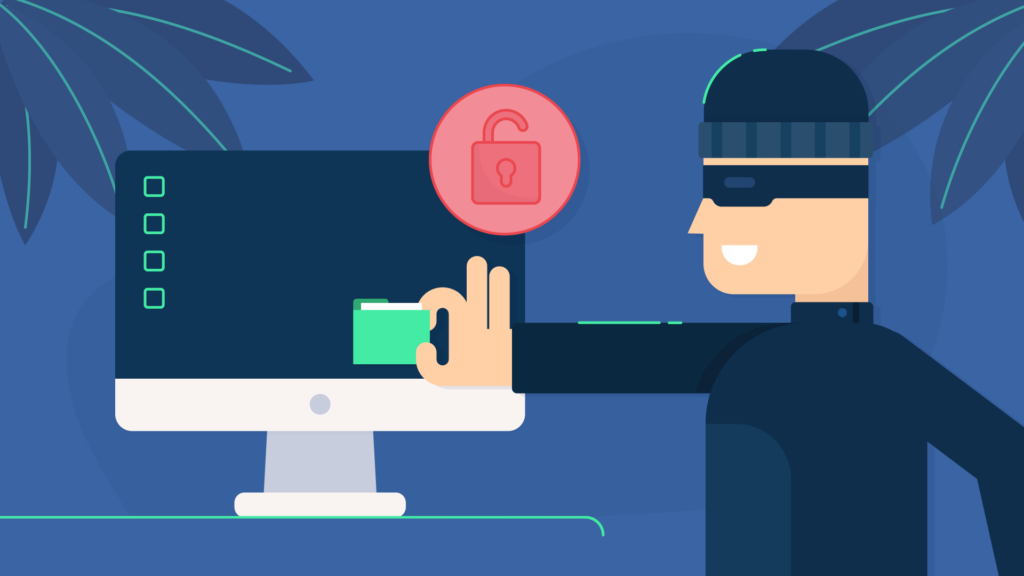Cybersecurity training services have never been more actual even though a significant majority of companies on a global scale still neglect the importance of protecting their data efficiently. Unfortunately, as the quality of training you can provide to your employees rises so does the menace embodied and hidden behind the avatars of hackers, hacktivists, scammers, and other criminal members of virtual society. Exactly for that reason the adequate training for your employees and the establishment of a so-called human firewall is of utter importance and can prevent potentially irreparable damage that could strike your company from happening.
How do Attacks happen?
When we talk about cyber-attacks, absolutely everyone with a gadget connected to the web or even networked with another device that has internet access is a valid target. Therefore, it is not only the technology department that is particularly sensitive to cyber-criminal, moreover, every single working man employed at a company, from CEO to counter assistant can be a victim if they are not adequately trained against various forms of attacks. Thus, read the following examples and figure out why it is crucial to organize cybersecurity training for the staff.
Phishing

Source: campussafetymagazine.com
In the cyber community phishing is also referred to as a social-engineering attack, and believe it or not, as much as half of the small and medium-sized businesses have experienced security violations via this type of cyber-attacks. When large and multinational companies are in question, percentages go a bit lower, but considering the amount of data they are handling that digit is appointing us to an even large scale. Fortunately, they are aware of potential dangers so most of the security breach attempts were annihilated before anything serious has happened, but the danger does not pass, moreover, it evolves constantly.
So, what is phishing and why is it so dangerous? Cybercriminals target employees and send them emails with malign links and contaminated content which would be suspicious if the mail did not come from a superior manager or a well-known member of their collective. Scammers are becoming more proficient by manipulating HTTPS and SSL protocols so the links they share via email appear to be valid. After downloading or clicking on a faulty link immediate connection between a company unit and the intruder occurs and data extraction is enabled.
Fileless Attacks
When we talk about the future of cyber-criminal, we think about fileless attacks. Since so many companies were affected by phishing, it is a relatively known form of a security breach and it is easy to identify it, so even regular employees can solve the issue and recognize the threat with basic knowledge. Well, the strategy used by criminals when fileless attacks are in question is totally opposite, as the name itself suggests.
Namely, fileless attacks do not engage in the content of any kind but affect various platforms commonly used by employees of a particular company. Therefore, this type of threat would interfere with either the software or particular apps utilized by the company, and even commonly used programs. By abusing the weakness of the program, the criminal entity constructs a gateway only crossable by itself, that way remaining almost undetectable, especially by untrained personnel. In order to learn more about cybersecurity and find out how to deal with threats such as fileless attacks and other malware visit panitechacademy.com and see how your company could benefit from it.
Malware Email

Source: sanebox.com
It is astonishingly worrying how this type of cyber-criminal manages to affect as many single units as it does. Namely, when we talk about small businesses that are characterized as ones that have up to 250 employees, they manage to be stricken by as many as 8 malware email assaults per worker, which sounds unrealistic to the uninformed.
This type of cyber assault represents a subdivision of vast malware dangers designed to use email downloads as their weapon of choice. Surprisingly enough, almost 90 percent of this type of breach is related to malware-laden email extensions workers use to access various servers, platforms, or networks. It takes as much as solely one click from the employee and the malware locates its objective and starts gathering valuable data as soon as it gets downloaded to the host PC.
Human Error
Nothing of the aforementioned would ever be possible if there were not for the human factor. On one hand, humans create vicious content which is used to spy on both companies and individuals, and on the other, it is the uneducated human behavior that allows that same vicious content inside their devices, sometimes even without knowing they are about to experience serious problems. Besides not knowing what and why they click, other serious issues are caused by inadequately trained employees.
Unintentional Revelation of Data

Source: pexels.com
Employees should always be dedicated to what they do, especially when confidential material is in question. Still, it is not a novelty that an employee accidentally sends an email to the wrong address or sends a fax to the wrong extension. Sharing of files with certain contacts by chance might lead to serious consequences causing harm both to the company and the guilty one.
Irregular Disposal of Data
There are certain procedures related to particular processes that should be done according to regulations. Although this section is related to improper disposal of confidential paper documentation, mistakes happen in digital processing as well.
Unintentional Deletion

Source: factschronicle.com
It is hard to find a human that has never accidentally erased a file and repented immediately after. Things such as deletion happen all the time, but trained employees should be aware that they should save their files as often as possible but also to back up their hard drives in order not to bring themselves into an awkward situation.
Since we live in the age of technology and the usage of devices connected to the internet 24/7 is considered a new normal, asking a question of whether cybersecurity is important or not sounds superfluous, especially after reading the pieces of information listed in the lines above. Likewise, employing an unprofessional workforce and entrusting them with tasks they are not up to assigns guilt solely to the employer if things go downhill, and the same goes if the employer fails to provide adequate cybersecurity training when the security of the company data is in question.







